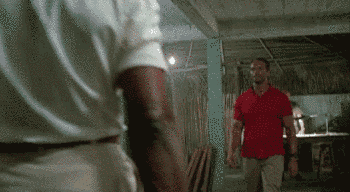Managing Stress in the Midst of Tragedy
When we encounter tragedy it can affect us in different ways, but make no mistake, it DOES affect us.
What can we do when we feel angry, or frozen, or anxious or heartbroken?
Here are some practical things you can do to try and meet yourself with cognitive compassion.
Stop judging yourself for the reaction.
Feelings are just data. They tell us that we are having a reaction. When we feel angry, something crossed our boundaries. When we feel sad, something hurt our heart. When we feel anxious, something is unsettling our sense of safety. It’s nothing more than data.
The more we judge ourselves for our feelings, the longer they persist. One phrase I like to say to myself is: “That makes sense!”
I’ll have a little conversation with myself and say: “Oh, you’re feeling anxious because something unexpected happened? Well, that makes sense.” “Oh, you’re feeling angry because someone did something that hurt you? Well, that makes sense.” If we sit long enough with our feelings, and get curious enough, we will find that all of our feelings make sense.
Shake up your body
Before we can change our story or move into a strategy for what to do next, we have to shake up the body. It can be helpful, when we feel a bit overwhelmed with emotions or thoughts or tragedy, to move the body.
Take a walk. Drink a large glass of water. Get into the sun. Do some breathing exercises. Listen to some high frequency music. Put on music that makes you want to dance. Go to the gym and lift heavy things. Laugh with a friend.
The body always comes first before the mind and heart, start with your body - be kind to yourself and start with basics: Food, Water, Movement, Sleep, Sun.
Decide what you want to do with the feelings
Just because our feelings are valid, doesn’t mean every action we want to take FROM those feelings is helpful. It’s important to start exploring what we want to do with our feelings, and then figure out if those actions are helpful or not.
It makes sense that I’m angry at someone who did something that hurt me, but if I start to journal about what I want to do about it…well, I’ll probably uncover some unhepful actions - like yell at them, or quit a team, or take my ball and run home.
It can be productive to journal all the things we WANT to do, so we can take a look at them, and then decide which one of these options is aligned with our values.
Find Community
Small things feel overwhelming when you are along, but big obstacles can feel do-able when you have the right team around you. It is sometimes our instinct to pull away when we feel sad, upset or overwhelmed, but research has shown us over and over again that human connection is vital to overcoming obstacles.
Who can you reach out to? What support can you ask for? Even if it’s just a friend to vent to, or someone to get a drink and laugh with, or someone to just be there - no words are even needed, just someone to be with you through the hard times, lean into your community!!
We don’t know when tragedy will strike, we don’t know obstacles we will face, but having tools like these in our emotional regulation tool box is vital to navigating life’s ups and downs.




Love these finally getting back into em